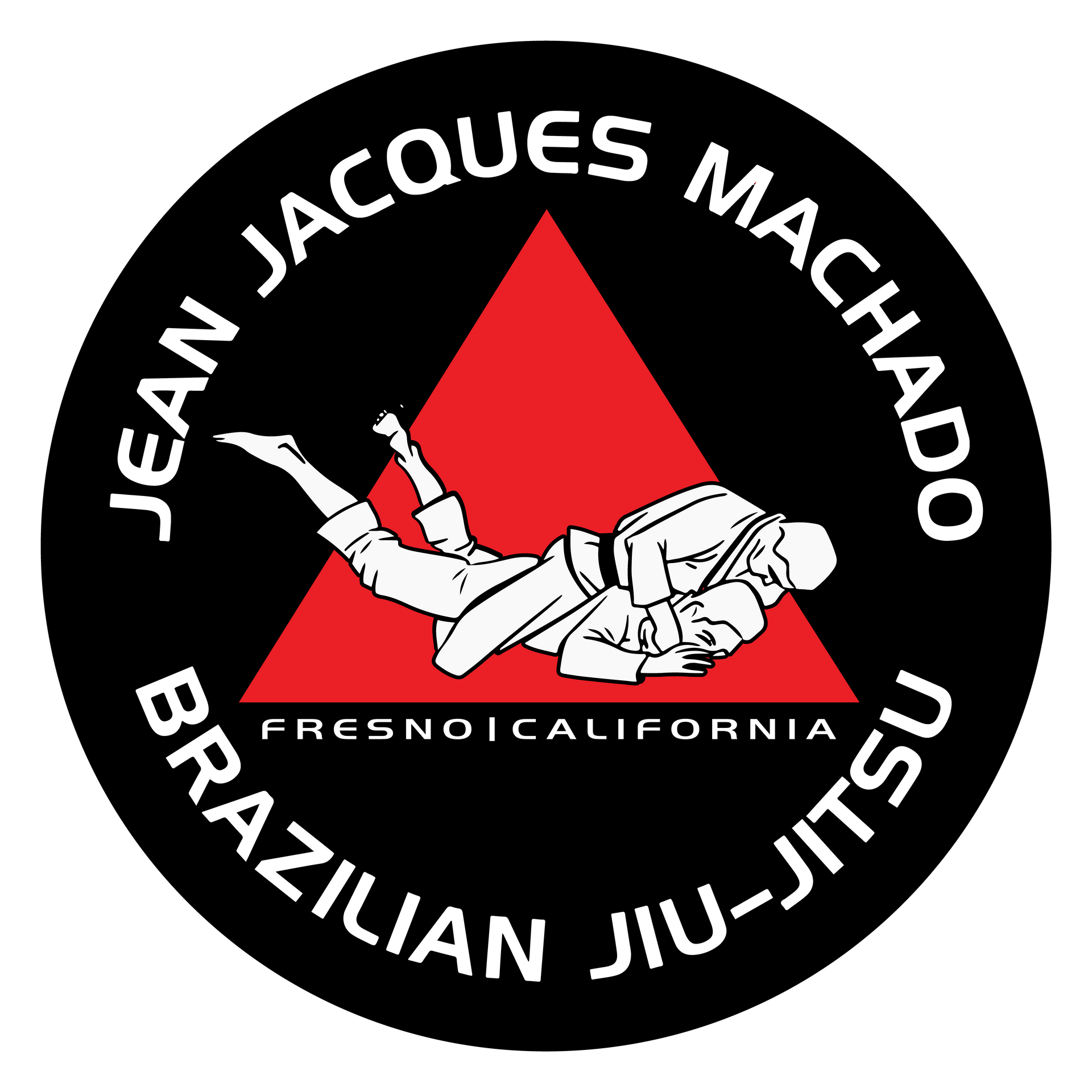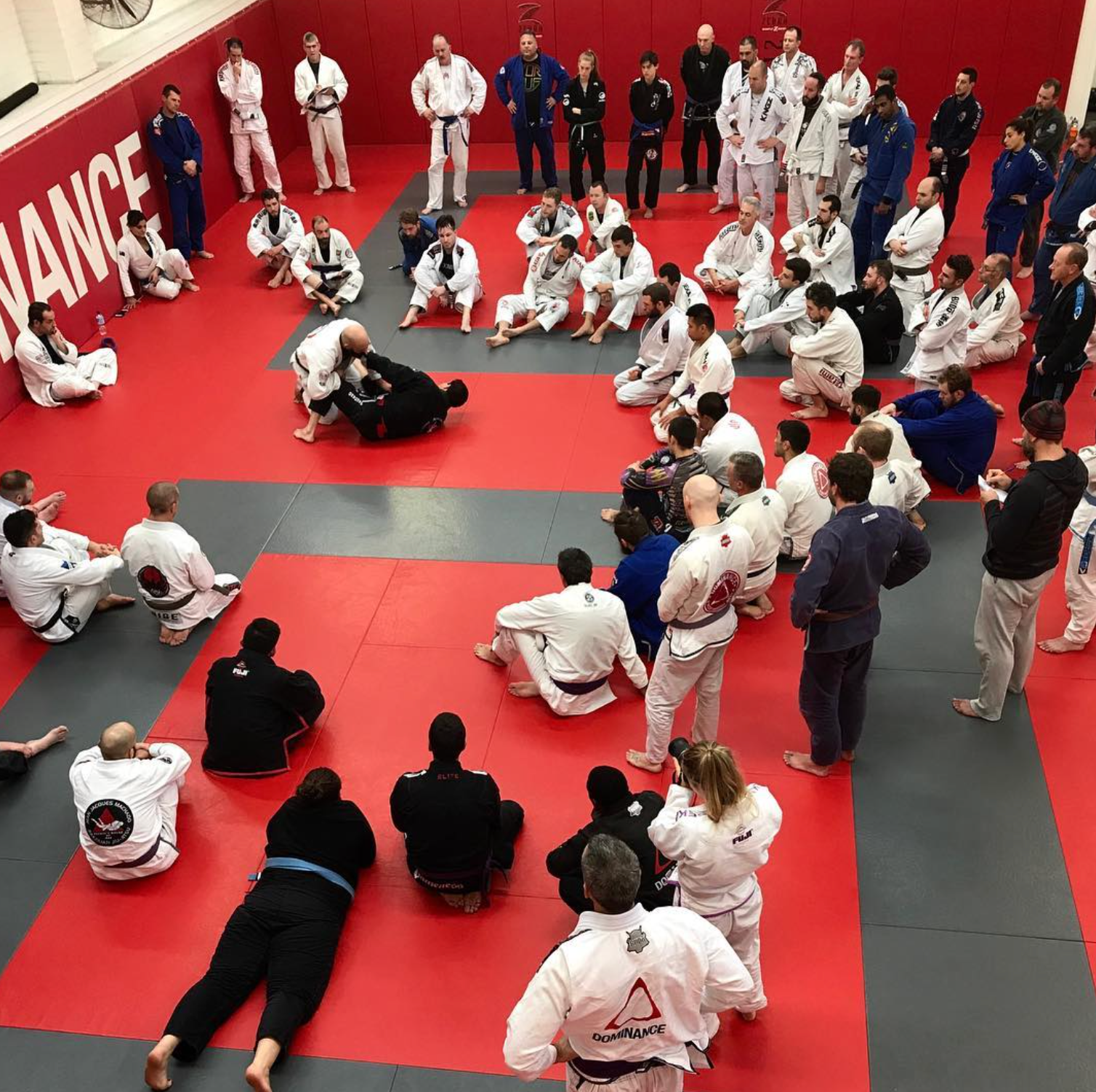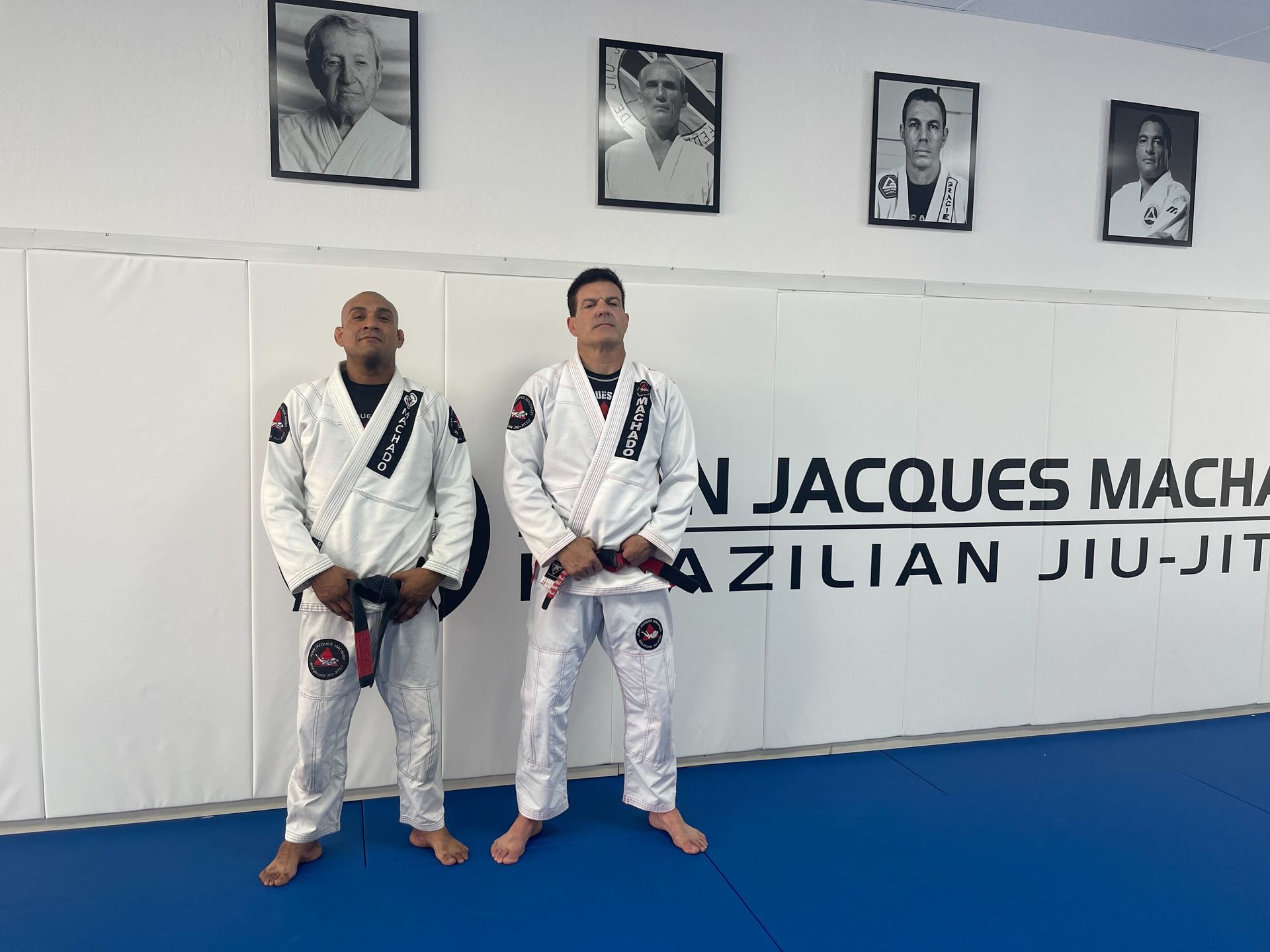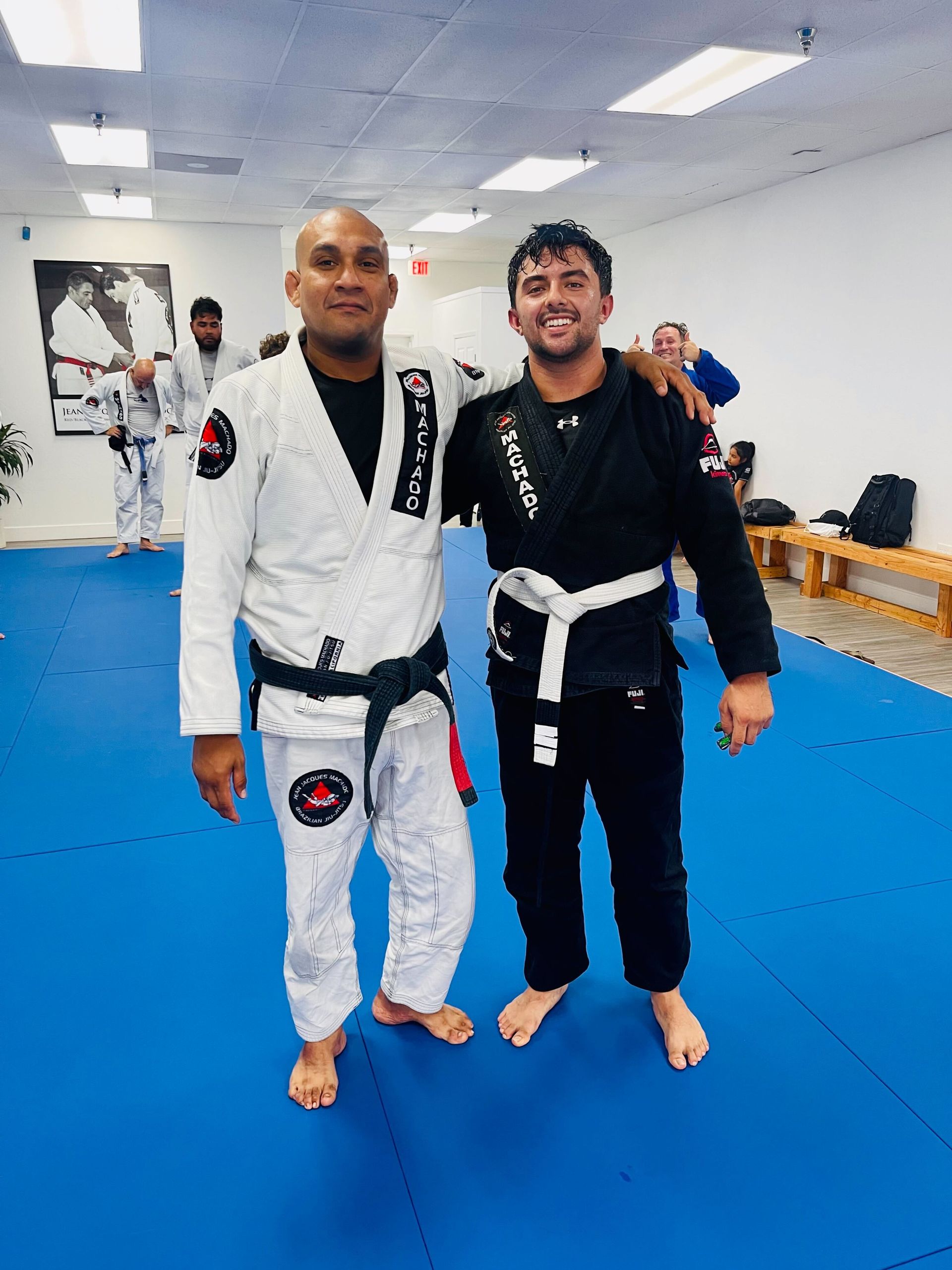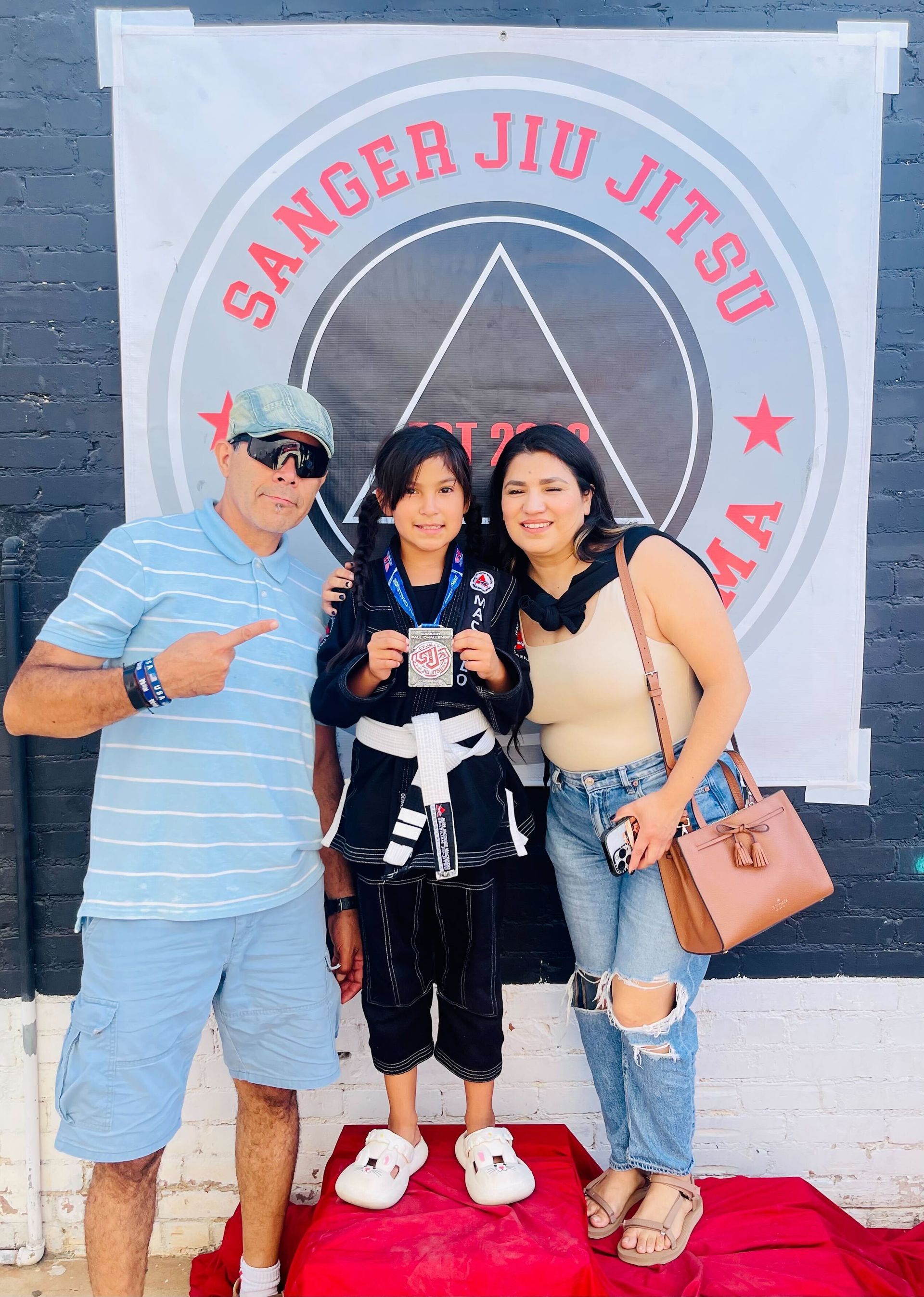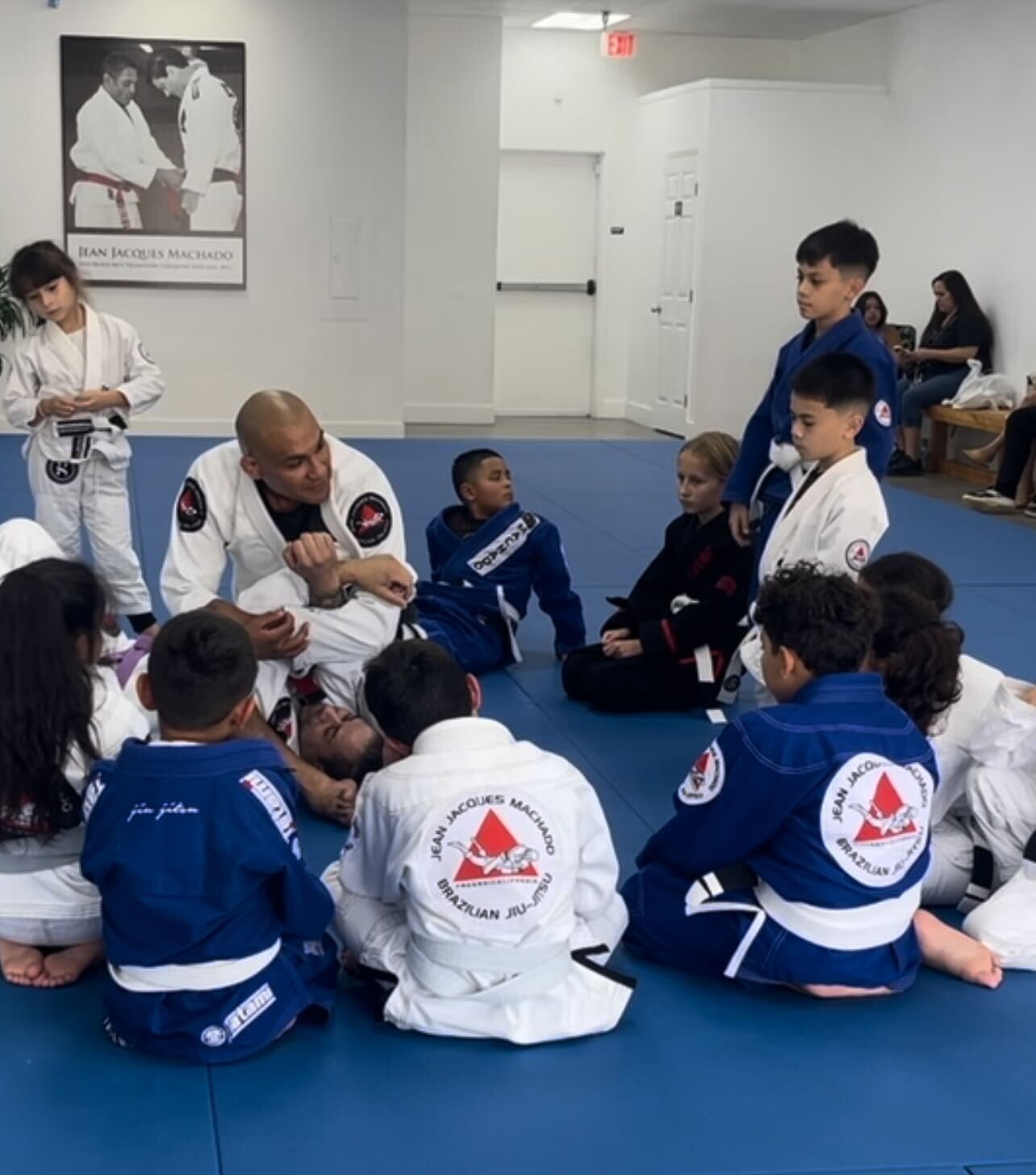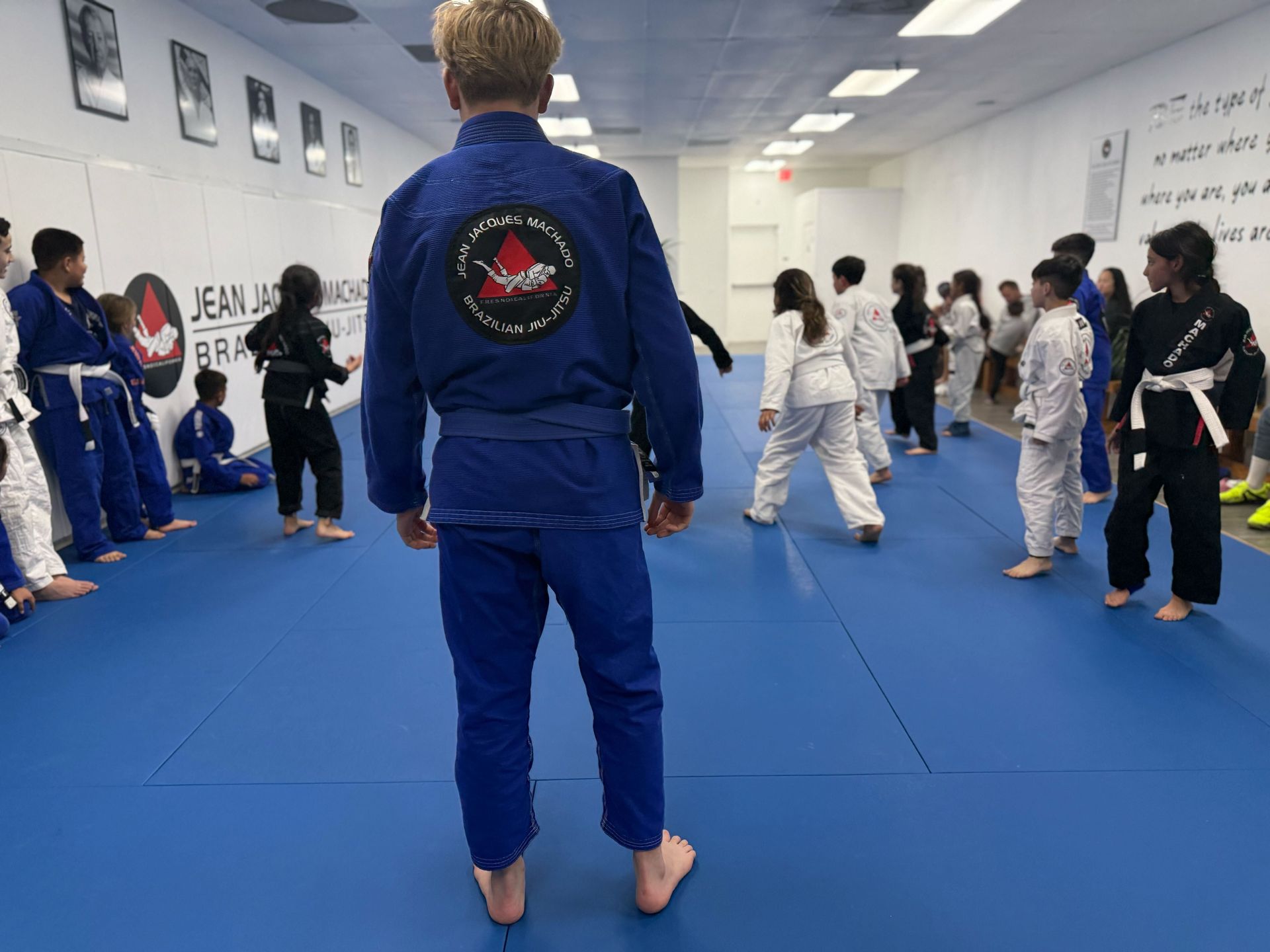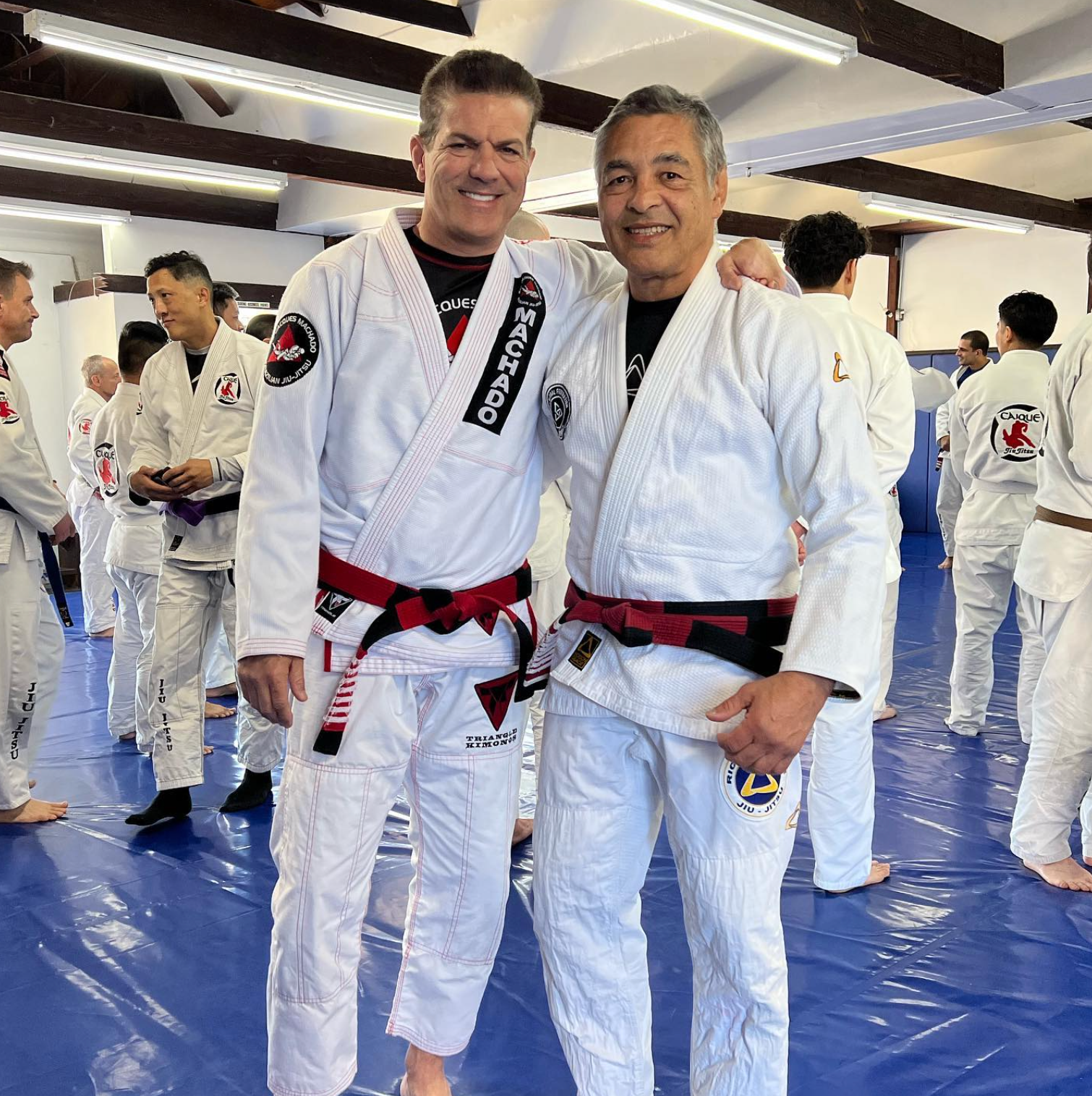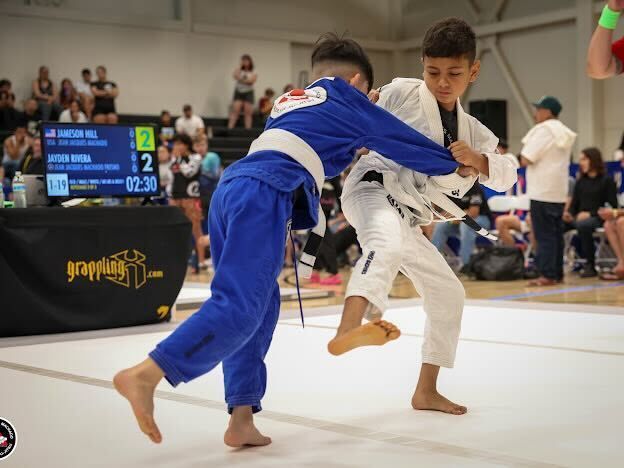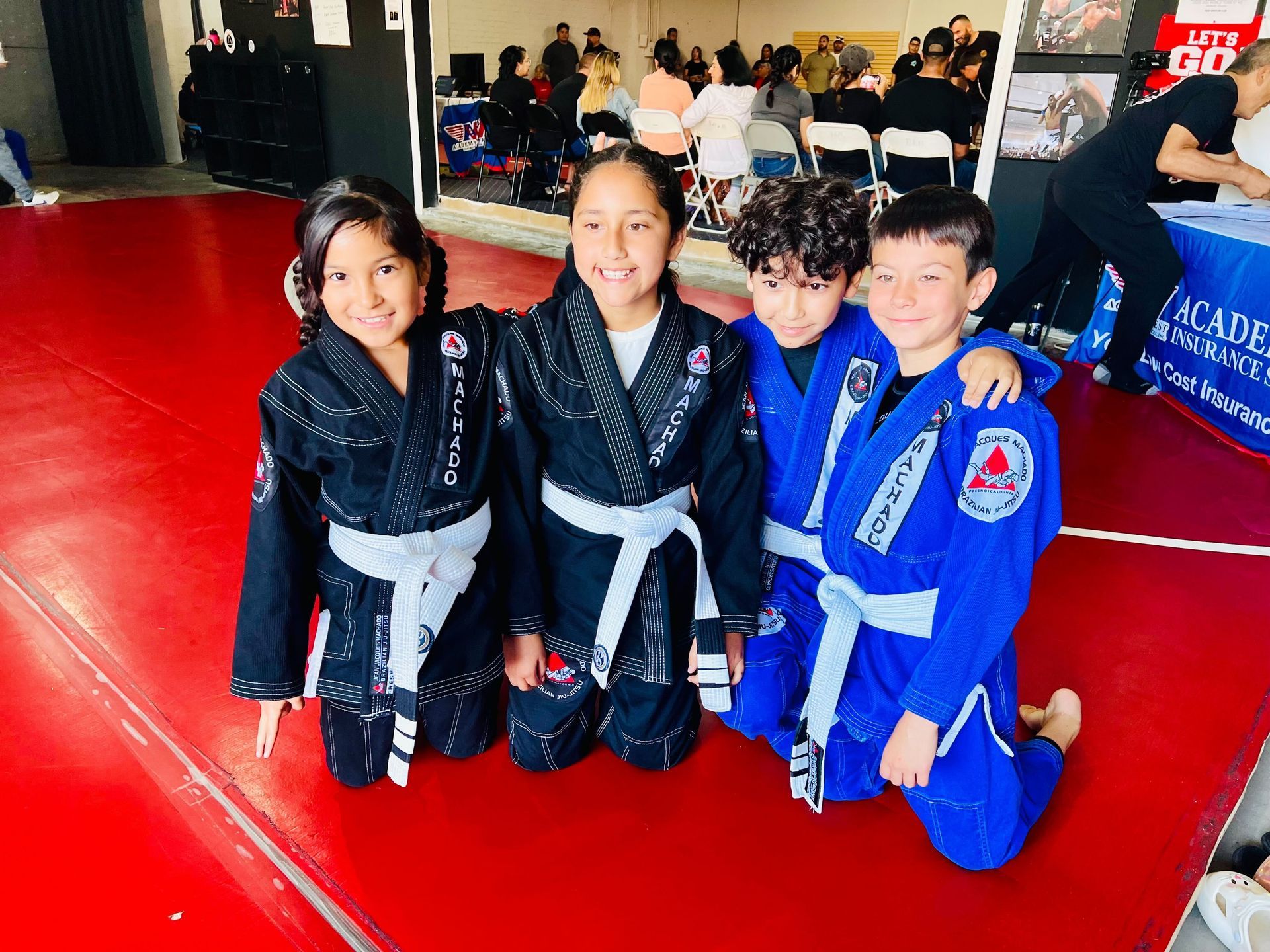The Benefits of Martial Arts for Older Adults
Martial arts have long been recognized for their physical, mental, and social benefits, appealing to individuals of all ages.
However, for older adults, martial arts offer a unique and holistic approach to improving overall health and well-being. In this article, we explore the diverse benefits of martial arts for older adults and provide insights into how they can begin their journey at JJM Fresno School.
Introduction to Martial Arts for Older Adults
What is Martial Arts?
Martial arts encompass a variety of disciplines that include self-defense, physical exercise, and mental training. Popular styles such as Karate, Tai Chi, Judo, and Brazilian Jiu-Jitsu offer structured approaches to learning combat techniques while emphasizing personal growth, discipline, and respect.
Why Martial Arts is Suitable for Older Adults
Martial arts provide a flexible and adaptable form of exercise suitable for older adults. Unlike conventional fitness programs, martial arts offer not only physical conditioning but also mental and emotional growth, making them an excellent choice for holistic health improvement.
Physical Benefits of Martial Arts
Improved Flexibility and Balance
One of the most notable benefits of martial arts for older adults is the improvement in flexibility and balance. Regular practice helps enhance joint mobility and muscle elasticity, which are crucial for maintaining independence and reducing the risk of falls.
How Martial Arts Enhances Flexibility
Techniques like stretching, controlled movements, and forms practiced in martial arts significantly contribute to improved flexibility. Disciplines such as Tai Chi focus on slow, deliberate motions that gently stretch the muscles, increasing overall body flexibility without the need for intense physical exertion.
Benefits of Better Balance in Daily Activities
Better balance directly impacts an older adult’s ability to perform daily activities confidently. Improved balance reduces the likelihood of accidents, helping seniors maintain their independence for longer periods.
Enhanced Strength and Endurance
Strength and endurance are critical components of physical health that naturally decline with age. Martial arts offer a dynamic way to build and maintain these elements, utilizing the body's resistance and repetitive movements to strengthen muscles.
Types of Martial Arts Techniques that Build Strength
Disciplines such as Karate and Brazilian Jiu-Jitsu incorporate various stances, kicks, and grappling techniques that build muscle strength. Consistent practice not only tones the body but also improves overall endurance, allowing older adults to perform daily tasks more easily.
Endurance Benefits for Older Adults
Endurance gained through martial arts extends beyond physical capacity. It improves cardiovascular health, boosts energy levels, and enhances the ability to engage in extended activities without fatigue.
Weight Management
For older adults, maintaining a healthy weight is often a priority. Martial arts provide a fun and engaging way to manage weight, combining aerobic and anaerobic exercises that help burn calories and build muscle.
Role of Martial Arts in Weight Control
Martial arts routines often include a mix of cardio and strength training, which is ideal for weight management. Practices like Kung Fu and Capoeira are particularly effective due to their high-energy movements.
Examples of Low-Impact Martial Arts
For those seeking gentler options, Tai Chi and Aikido are excellent low-impact martial arts that provide the benefits of physical exercise without putting stress on the joints.
Mental Benefits of Martial Arts
Reduced Stress and Anxiety
In addition to physical advantages, martial arts are known for their ability to reduce stress and anxiety. The mindful nature of martial arts, combined with controlled breathing and meditation, promotes relaxation and a sense of peace.
Mindfulness in Martial Arts
Practices such as Tai Chi and Qigong integrate mindfulness techniques that help practitioners focus on the present moment, reducing stress and anxiety. This mindfulness aspect of martial arts is particularly beneficial for older adults who may face mental health challenges related to aging.
The Role of Meditation and Breathing Techniques
Many martial arts incorporate meditation and specific breathing techniques that calm the mind. These practices enhance mental clarity, reduce negative thought patterns, and improve overall mental well-being.
Improved Cognitive Function
Martial arts stimulate the brain, helping to improve cognitive function, which is vital for older adults. Regular practice can aid in memory retention, enhance focus, and even delay cognitive decline.
How Martial Arts Stimulates the Brain
Engaging in martial arts requires coordination, strategic thinking, and the learning of complex movements. This mental engagement stimulates various areas of the brain, promoting neuroplasticity and improving cognitive function.
Memory and Focus Enhancements
Remembering sequences, focusing on techniques, and maintaining concentration during practice sessions contribute to better memory and attention spans. These cognitive benefits are essential for older adults looking to keep their minds sharp.
Boosted Confidence and Self-Esteem
Achieving new skills and progressing through martial arts ranks can significantly boost confidence and self-esteem. For older adults, this newfound confidence can translate into greater independence and a more positive outlook on life.
Achievement through Progression
Martial arts provide a clear progression path, with belts or levels signifying mastery. This structured progression helps older adults set and achieve goals, fostering a sense of accomplishment and pride.
Social Interaction and Community
Beyond physical and mental benefits, martial arts also offer substantial social advantages. Engaging in group classes allows older adults to connect with others, build friendships, and develop a supportive network.
Social Benefits of Martial Arts
Building a Community
Martial arts schools often foster a sense of community among practitioners. For older adults, this can be especially valuable as it combats loneliness and provides opportunities for meaningful social interactions.
The Importance of Social Connections
Social connections play a critical role in overall health, particularly for older adults who may experience isolation. Participating in martial arts classes offers a sense of belonging and an opportunity to meet like-minded individuals.
Martial Arts as a Group Activity
Group activities in martial arts not only enhance social bonds but also provide accountability and motivation, encouraging consistent participation.
Opportunities for Social Engagement
From classes to tournaments, martial arts provide numerous opportunities for older adults to engage socially. Participating in events, workshops, or group practices can lead to lasting friendships and a strong sense of community.
Events, Competitions, and Workshops
Many martial arts schools organize events that allow practitioners of all ages to showcase their skills. These events provide a platform for older adults to demonstrate their progress and celebrate their achievements with peers.
Inclusive Environment for All Ages
Martial arts schools typically offer an inclusive environment that welcomes individuals of all ages and abilities, creating a supportive space for older adults to thrive.
Martial Arts for Specific Health Conditions
Martial Arts for Arthritis
Arthritis can be a debilitating condition that affects joint mobility and causes pain. Martial arts, with their focus on gentle movements, can offer a form of exercise that improves joint health without exacerbating symptoms.
Gentle Movements and Joint Health
Disciplines like Tai Chi and Qigong emphasize slow, controlled movements that are easy on the joints, making them ideal for individuals with arthritis. These movements enhance circulation, reduce stiffness, and improve overall joint function.
Pain Management and Improved Mobility
Martial arts also incorporate breathing exercises and mindfulness, which can help manage pain and improve mobility for those with arthritis.
Martial Arts for Heart Health
Cardiovascular health is a major concern for older adults, and martial arts provide a way to enhance heart health through moderate aerobic activity.
Cardiovascular Benefits
Practices like Tai Chi have been shown to lower blood pressure, improve circulation, and strengthen the heart. Martial arts that include dynamic movements can increase heart rate, providing a cardiovascular workout that is both safe and effective.
Safe Practices for Older Adults
It’s important for older adults to engage in martial arts at a pace that suits their fitness level. Many schools offer modified classes that cater to seniors, ensuring exercises are safe and beneficial.
Martial Arts for Diabetes
For individuals managing diabetes, regular physical activity is crucial. Martial arts offer a structured and enjoyable way to help regulate blood sugar levels.
Blood Sugar Management
Martial arts can help regulate glucose levels by improving overall fitness, enhancing muscle function, and promoting healthy weight management. Regular participation aids in better blood sugar control, which is essential for managing diabetes.
Importance of Regular Physical Activity
Consistent practice of martial arts encourages older adults to stay active, which is key to managing diabetes and preventing complications associated with the condition.
Choosing the Right Martial Art for Older Adults
Low-Impact vs. High-Impact Martial Arts
When selecting a martial art, it’s important for older adults to consider the intensity level. Low-impact martial arts like Tai Chi, Aikido, and Qigong offer gentle exercise that minimizes strain on the body, making them ideal choices for seniors.
Examples of Low-Impact Martial Arts
Low-impact styles prioritize slow, deliberate movements and are less likely to cause injury, making them suitable for those with mobility concerns or chronic conditions.
Finding the Right Fit for Individual Needs
The best martial art for an older adult will depend on their physical capabilities, personal interests, and health conditions. Exploring different styles and consulting with instructors can help in finding the right fit.
Consulting with Health Professionals
Before starting any new exercise regimen, it’s advisable for older adults to consult with healthcare professionals. This ensures that the chosen martial art aligns with their health needs and fitness level.
Importance of Medical Guidance
Medical professionals can provide insights into which types of physical activity are most appropriate, helping to tailor martial arts programs to individual health conditions.
Customizing Martial Arts Programs for Safety
Many martial arts schools, including JJM Fresno, offer customized programs that cater to the needs of older adults, ensuring a safe and supportive environment for learning and growth.
Getting Started with Martial Arts at JJM Fresno School
Overview of Programs Offered
JJM Fresno offers a variety of martial arts programs tailored to different skill levels and interests. Older adults can find classes that cater specifically to beginners, focusing on foundational skills and safety.
Class Types and Schedules
The school provides a flexible schedule with classes available at various times, making it convenient for seniors to join. Classes are structured to accommodate all fitness levels, ensuring everyone can participate comfortably.
Instructors' Expertise and Approach
Instructors at JJM Fresno are experienced in working with older adults, offering patient, supportive, and knowledgeable guidance to help students achieve their personal goals.
Beginner Tips for Older Adults
For older adults new to martial arts, it’s important to start slowly and listen to their bodies. Taking breaks as needed and gradually increasing the intensity of practice will help build confidence and prevent injury.
Starting Slow and Building Confidence
Beginners are encouraged to set realistic goals and celebrate small achievements. This approach fosters a positive experience and motivates continued participation.
Listening to Your Body
Paying attention to the body’s signals is crucial. If something feels uncomfortable or painful, it’s okay to modify movements or take a rest.
Frequently Asked Questions (FAQs)
1. Is martial arts safe for older adults with health conditions?
Yes, many martial arts styles, especially low-impact ones like Tai Chi, are safe for older adults with health conditions. It's always best to consult with a healthcare provider before starting.
2. How often should older adults practice martial arts?
A good starting point is 2-3 times a week. Frequency can be adjusted based on personal goals and fitness levels.
3. Can martial arts help with chronic pain?
Yes, martial arts can help manage chronic pain through gentle movements, improved flexibility, and stress reduction techniques.
4. What should older adults wear to martial arts classes?
Comfortable, loose-fitting clothing that allows free movement is ideal. Specific attire may vary by martial art style and school requirements.
5. Do martial arts provide any mental health benefits?
Absolutely! Martial arts can reduce stress, improve focus, and boost overall mental well-being through mindfulness and physical activity.
6. Can older adults compete in martial arts?
Yes, many martial arts offer competition opportunities for all ages. Participation in competitions can be a fun way to set goals and engage with the martial arts community.
Final Thoughts
Martial arts offer a wealth of benefits for older adults, from physical improvements like better balance and strength to mental and social advantages. At JJM Fresno School, seniors can find supportive programs tailored to their needs, encouraging a fulfilling and healthy martial arts journey. Embrace the opportunity to enhance your quality of life through martial arts, and discover the many ways it can contribute to your overall well-being.
